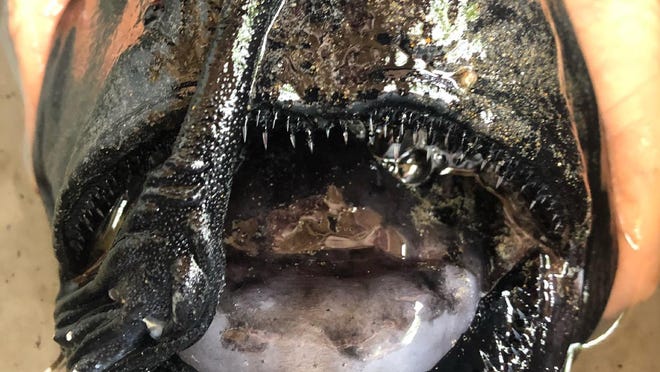Animals around the world have been feeling the negative effects of climate change, but there’s one slithering creature that may be benefitting from it: rattlesnakes.
Rattlesnakes can be found in every state in the continental U.S., according to Lewis and Clark Trail Heritage Foundation, but they are commonly found in the southwest. One of the most widely known snakes in the world, rattlesnakes are relatively reserved reptiles that avoid human confrontation, but when threatened, they often will curl into striking position and begin to rattle their signature tail before they give a venomous bite.
A new study published in the journal Ecology and Evolution earlier this month suggests rattlesnakes could spend less time hibernating and more time being out in the wilderness as the planet warms.
Rattlesnake bites: What to do if you get a snakebite
For subscribers: Venomous snakes in the US, an illustrated guide
The reasoning has to do with rattlesnakes being cold-blooded animals. Hayley Crowell, doctoral student at the University of Michigan and lead author of the study, and her team examined the Pacific rattlesnake because it can be found in desert regions like Southern California and colder climates like Washington state.
Researchers observed the snakes preferred body temperatures of around 86-89 degrees Fahrenheit, much warmer than those found in nature. Also, ones taken from hotter climates appeared much larger than those in colder conditions.
“They’re existing in temperatures cooler than what they would want to be at in a perfect world,” Crowell told USA TODAY. “If there’s a couple degree increase in climate, these snakes, from a physiology standpoint, might be happier because it’s closer to their preferred body temperature.”
If temperatures continue to warm, Crowell said that could mean hibernation ends earlier in the spring for rattlesnakes, and they could still be active late in the fall heading into winter.
“Basically just more time to grow and do rattlesnake things,” she said.
‘Try to avoid panicking!’: Texas officials warn of rattlesnakes hiding in pool noodles
‘There’s a snake in my couch’:Man shocked to find 7-foot-long reptile curled behind sofa cushion
Even if rattlesnakes do benefit from warmer temperatures, they still have some negative effects from it; there’s projected to be less prey like squirrel and lizards, and snakes could be victim of increased wildfires and the low availability to water.
Yet, rattlesnakes do have a way of countering eating less, as Crowell’s team also noted they have lower metabolisms than their counterparts, and could be content with eating only a dozen times a year.
“They just do not need a lot of food at all to survive,” she said. “A rattlesnake can totally survive just on one or two big ground squirrels a year if it needed to.”
Even without eating much, humans still remain a victim of rattlesnakes and other venomous snake bites.
The Centers for Disease Control and Prevention says 7,000 to 8,000 people are bitten by venomous snakes each year, with an average of five deaths in that timespan. But getting bit by a rattlesnake could leave a lasting mark, with 10%-to-44% of people bit by rattlers having last injuries, such as losing the ability to use extremities or having a disability.
Luckily, Crowell said not to panic; more rattlesnake activity won’t mean “a giant boom of millions of more rattlesnakes.” Instead, they might just be noticed more often and won’t drastically up the annual number of bites.
Follow Jordan Mendoza on Twitter: @jordan_mendoza5.


